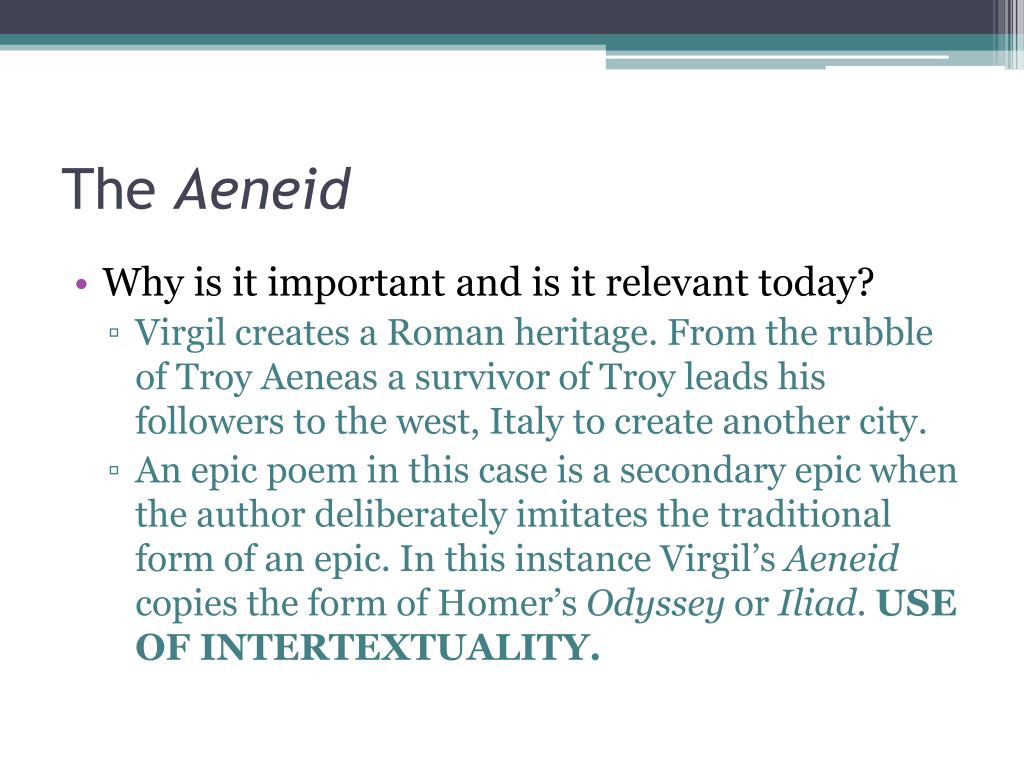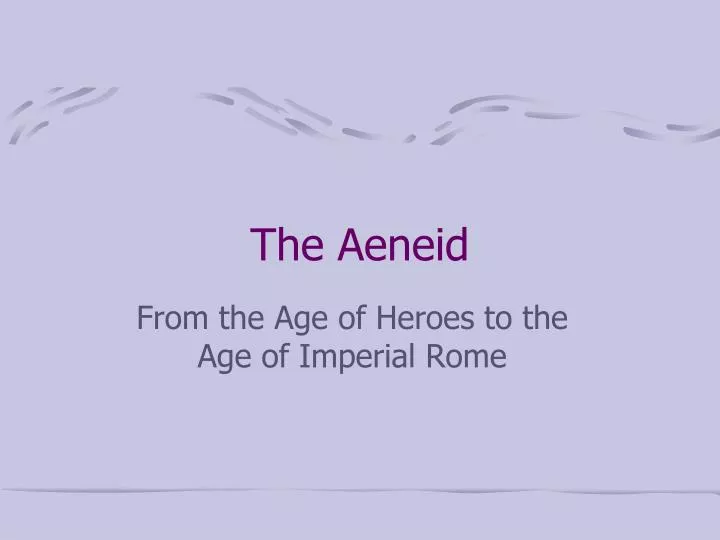
Andromache, the widow of the great Trojan hero Hector, has married Helenus, another Trojan refugee, and become queen of a small city in exile.

I would like to leave you with an image from The Aeneid that is emblematic of this daring perseverance of Aeneas-one that all of us should bear in mind whenever we lose something dear.ĭuring the seaborne wanderings before Carthage, Aeneas and his Trojans come upon another example of an easy way towards a semblance of decency. Crucially, Aeneas recovers from these faults, turns away from an easy resolution for his problems in Carthage, and dares to achieve a restoration for his people that is greater than what was lost, as Rome would be greater than Troy. The Aeneid in particular, as we have seen, sets before us a hero who faces national disaster and personal loss with exceptional courage and perseverance, but sometimes also with self-indulgence, dissipation, and uncontrolled rage. But that distance is an advantage that's common to all the great books, and so I commend them equally to you in that regard. This fight is long over, so we can meditate on the lessons in the poem with more detachment, without worrying so much about maybe our political opponents getting an advantage from it. We do not have our own politics in this fight. That, I think, we have determined.Īdded to this is an actual advantage in the work having been written initially for another time and another place.

So, why should we twenty-first-century Americans read this epic that was written at the behest of a great Roman emperor? What does this have to do with us? Well, we've seen, for one, that although The Aeneid was composed in part certainly to lend dignity to the imperial regime of Caesar Augustus, it was nonetheless not written as simple flattery. The following video is a clip from Hillsdale’s Online Course: “Great Books 101: Ancient to Medieval,” featuring Patricia Bart, associate professor of English.

Patricia Bart suggests that though we are far removed from Troy and Rome, we are still heirs of their culture, and have much to learn from this epic about perseverance in the face of loss. Despite his battle with circumstantial ruin and a flawed character, Aeneas perseveres. Dr.

Virgil’s Aeneid depicts a hero striving to overcome the loss of his homeland.


 0 kommentar(er)
0 kommentar(er)
